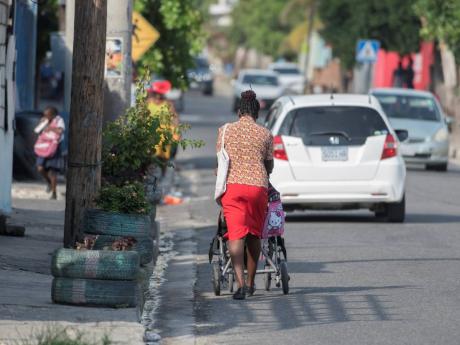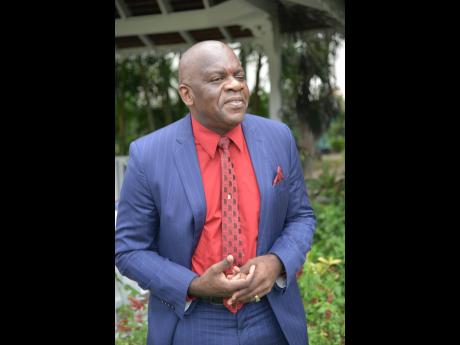Floyd Morris | Create social contract to implement rights of persons with disabilities
The year 2006 constituted a critical juncture for persons with disabilities across the world. It was the time when the United Nations adopted the Convention on the Rights of Persons with Disabilities (CRPD). The CRPD is a global treaty that reaffirms all the fundamental rights and freedoms from diverse human-rights treaties, in a centralised document for persons with disabilities. There are no new rights formulated specifically for persons with disabilities. It simply conflates all these rights for persons with disabilities and stipulates what should be done by states parties to allow the participation, inclusion and non-discrimination of persons with disabilities in society.
The CRPD is anchored in what is regarded as the social and human-rights models of disability. This is because the treaty draws extensively from the social model of disability that stipulates that it is social organisms that creates barriers for persons with impairments, thus creating a disabling environment for these individuals. The model further posits that if these barriers are removed, then persons with disabilities will be able to participate efficaciously in society. The rights and freedoms of persons with disabilities must therefore be recognised to allow for this participation, inclusion, and non-discrimination in society on an equal basis with others.
For four years, the world engaged in an extensive negotiation on the CRPD. From 2003-2006, states parties in the United Nations were engrossed in serious discussions about a global treaty that, if properly implemented, over time, will result in a massive transformation of the lives of persons with disabilities from across the world. Jamaica participated in all the sessions and played a pre-eminent role in the development of this global treaty. I had the distinct privilege of leading Jamaica’s small delegation whilst I served as minister of state in the Ministry of Labour and Social Security from 2001-2007. Ultimately, Jamaica became the first country in the world to sign and ratify the treaty when it was opened for signature in March 2007.
CONSISTENT DIALOGUE
During the negotiations, states parties to the United Nations were the ones who were in consistent dialogue. Treaties of this nature can only be formulated and agreed upon between states. Persons with disabilities and some civil society groups aligned to the community of persons with disabilities were allowed to participate in the discussions. However, they could not vote on any of the clauses that made up the CRPD. The voices and presence of persons with disabilities and these civil society groups were a strong influence on the final decisions taken by states parties. After all, governments are fully conscious that these individuals make up a sizeable portion of their population and have the right to vote and elect a government.
The CRPD came into full effect in 2008 after receiving the required number of signatures and ratifications from states parties. To date, 192 countries have signed and ratified this global treaty, making it one of the largest treaty bodies in the United Nations. From these ratifications, one can reasonably conclude that governments across the world are committed to improving the situation of persons with disabilities. But it requires much more than signing and ratifying this transformational treaty to improve the situation of persons with disabilities. Investments in education, accessibility, assistive technologies, healthcare, social protection, work and employment for persons with disabilities, among other things, must be immediately prioritised.
I have been granted the privilege to sit on the United Nations Committee on the Rights of Persons with Disabilities, the entity established to monitor the implementation of the CRPD across the world. I am one of the 18 experts that have been elected by states parties to the convention, to ensure that countries are honouring their obligations to promote, protect and ensure the full and equal enjoyment of all fundamental rights and freedoms by all persons with disabilities and to promote respect for their inherent dignity. In 2020, I was elected to the CRPD Committee for a four-year term.
From this vantage point, I have had the opportunity of assessing what are the gaps and challenges in implementing this global treaty. The gaps and challenges are linked to the fact that the CRPD was developed on the social and human-rights models of disability. Conversely, governments have been fashioning their programmes, policies and laws on the charity and medical models of disability, prior to the formation of the CRPD. Resultantly, a serious dichotomy has emerged as persons with disabilities are now rights holders and government systems, laws and procedures are by and large anchored in antiquated models of disability.
NOT INVOLVED
In this dichotomous situation, I have picked up that there are some groups that were not involved in the negotiations of the CRPD, not understanding how to treat and relate with persons with disabilities in the new dispensation. Private-sector organisations, trade unions, professional groups such as teachers, doctors, lawyers and members of the security forces, were not involved in the negotiations for the CRPD and thus do not have an understanding that persons with disabilities are now rights holders. A mechanism must therefore be formulated to get all the relevant stakeholders on the same page and to forge a collaborative agreement for the localisation of the CRPD.
It is within this context that I am proposing a social contract for the implementation of the CRPD. In this social contract, government, persons with disabilities, civil society groups, the media, trade unions, and professional groups must sit together to establish a collaborative agreement on how to go about implementing the CRPD. All of these groups have responsibilities under the diverse articles of the CRPD.
The following should be some of the features of such a social contract:
• Localising the CRPD;
• Persons with disabilities as rights holders;
• Changing attitudes towards persons with disabilities;
• Empowering stakeholders in how to relate with persons with disabilities;
• Providing modern assistive technologies for persons with disabilities;
• Promoting inclusive education;
• Establishing mechanisms for the employment of persons with disabilities;
• Promoting quality healthcare for persons with disabilities;
• Improving access for persons with disabilities; and
• Mechanisms for monitoring and evaluation.
The Centre for Disability Studies at the University of the West Indies, Mona, is prepared to lead the charge in formulating this social contract. We have the expertise on the CRPD and know exactly what to be done to have this global treaty localised. Let us endeavour to get it done. The population of persons with disabilities requires that this social contract be developed to facilitate their meaningful inclusion in society on an equal basis with others.
Floyd Morris, PhD is professor in disability studies; he is the director, Centre for Disability Studies at The University of the West Indies, Mona. Send feedback to columns@gleanerjm.com.


